
Contest winners: 8 compelling stories of India's self-made women, against the odds
Forbes India readers pointed us to a group of incredible women, who have succeeded despite the harshest adversities
 Image: Shutterstock
Image: Shutterstock
‘I had to learn to fend for myself from birth’
Rita Jairath, 51, Bodybuilder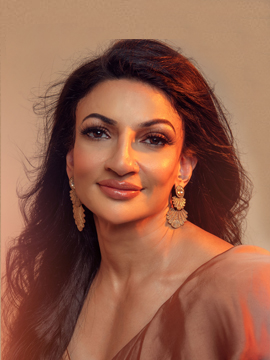 My mother was schizophrenic, and my father, an air force officer, wasn't always in the right frame of mind under the immense pressure of looking after her. At the slightest trigger, they would hit me black and blue. I grew up mostly at neighbours’ homes—they would feed me and take care of me. At that time, there was little awareness about mental illness and our family was branded ‘mad’; I had no friends as a result. My only escape was school and co-curricular activities, and I excelled there.
My mother was schizophrenic, and my father, an air force officer, wasn't always in the right frame of mind under the immense pressure of looking after her. At the slightest trigger, they would hit me black and blue. I grew up mostly at neighbours’ homes—they would feed me and take care of me. At that time, there was little awareness about mental illness and our family was branded ‘mad’; I had no friends as a result. My only escape was school and co-curricular activities, and I excelled there.
I used to help my neighbour's son in studies, and to get away from the beatings and work towards becoming a doctor, I married his brother, a merchant navy officer. But it turned out to be more of the same. My in-laws taunted me and, through my pregnancy, treated me like a maid. They initially refused to pay for a caesarean delivery, but when the foetus’s heartbeat went very low, they were forced to. My son, Anish, was born autistic and couldn’t speak in his initial years.
Anish fell ill after a few months, but they refused to take him to a doctor. That’s when I went back to living with my parents, which was equally unhappy.
I consulted various doctors for Anish and all of them said I was wasting time and money; that he would never speak. But, by then, I had lost everything, and my only mission was to make him as normal as possible. There was limited knowledge about autism in India then, in the 80s, so I wrote to a relative in the US. He sent me literature on autism, which helped me create flash cards and therapy strategies. When Anish was about five or six, he started to speak; he couldn’t make meaningful conversations, but it was a start.
A neuropsychiatrist suggested enrolling him in sport. In Class 10, he wanted to emulate Hrithik Roshan’s six-pack abs. I enrolled him into a gym and started training alongside. I began enjoying it, and participated in local fitness competitions, slowly leading up to national and international contests. I was perhaps a natural—in one competition, I did 500 squats; the next best was a national-level runner who did 75.
Of course, there was criticism. But staying in near-isolation all these years helped me blank out that noise. Once I started winning, I found more supporters than detractors. I am now a three-time national bodylifting champion, and the only woman pro-league international bodybuilding judge from Asia for the IFBB (International Federation of Bodybuilding). I also consult athletes and trainers for their diets and sports nutrition.
Meanwhile, I sent my son to college in the UK to study computing. There, he was housed with a compassionate Portuguese family and I would visit every month. Once he completed his education, I set out to complete mine. I did my graduation and post-graduation degrees from Delhi University and eventually got an honorary doctorate from the American University, affiliated to the United Nations University. Life, indeed, has come a full circle (As told to Kathakali Chanda) 'I learned this the hard way: Every woman should find ways to earn her own money’
Reeta Khandelwal, 51, jeweller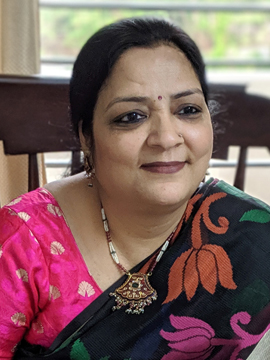 I grew up in a very modest family in Bareilly, and married into a rich home in Uttarakhand’s Haldwani. I have a BA degree but focused all my time on raising my two children—until one evening in January 2006, when my husband was shot dead from the back. He was locking up his jewellery store as he did every day, and dropped dead right before my eyes, and those of my son, then 17.
My husband and his brother would run the business together until a separation in 2002. When my husband died, with motivation from my sister-in-law, I firmly decided that I would take over the business. Months later, the police came to us with evidence that my a close relative was behind the murder.
All I knew about the business at that point was how to open the lock. I had to learn everything from zero—how to manage stock, deal with customers, work out finances, and so on. I had no support from my husband’s family, even though we all lived in the same building, other than of my sister-in-law. What really helped was that the karigars supported me, patiently explaining everything. I cut costs at work, downsized our staff and managed to make the company profitable again.
We had debt to repay, and both my children were at top boarding schools. I wanted them to continue studying, and said I would live alone, relying on faith and a flood of inner strength. When I look back, I don’t know how I did it—continuing to live in the same building as my husband’s family, estranged to me, because I had no choice. Through all of this, I had to make the court rounds too. The case is pending judgment at the Supreme Court, but I am not focused on the outcome. I have faith that the perpetrator will be punished in this life, one way or another. I never discuss the legal matters with my children.
My children have been my biggest source of strength. Now, my son and his wife live with me, and we manage the business, called Jaiguru Jewellers, together. We opened a new store last year and are working on creating a niche brand of Kumaon jewellery, focused on further expansion. My daughter is a lawyer. I tell both my daughter and daughter-in-law that no matter what happens, don’t stop working. That’s the biggest lesson for me. Every housewife should do something, even if just for a few hours a day, so she can earn her own money. The way people perceive you will change, and you will gain the confidence and independence to make your own choices. Never let yourself be in a position to beg for money.
(As told to Pankti Mehta Kadakia)
‘I believe in powering through unthinkable grief; in speaking up’
I grew up in a very modest family in Bareilly, and married into a rich home in Uttarakhand’s Haldwani. I have a BA degree but focused all my time on raising my two children—until one evening in January 2006, when my husband was shot dead from the back. He was locking up his jewellery store as he did every day, and dropped dead right before my eyes, and those of my son, then 17.
My husband and his brother would run the business together until a separation in 2002. When my husband died, with motivation from my sister-in-law, I firmly decided that I would take over the business. Months later, the police came to us with evidence that my a close relative was behind the murder.
All I knew about the business at that point was how to open the lock. I had to learn everything from zero—how to manage stock, deal with customers, work out finances, and so on. I had no support from my husband’s family, even though we all lived in the same building, other than of my sister-in-law. What really helped was that the karigars supported me, patiently explaining everything. I cut costs at work, downsized our staff and managed to make the company profitable again.
We had debt to repay, and both my children were at top boarding schools. I wanted them to continue studying, and said I would live alone, relying on faith and a flood of inner strength. When I look back, I don’t know how I did it—continuing to live in the same building as my husband’s family, estranged to me, because I had no choice. Through all of this, I had to make the court rounds too. The case is pending judgment at the Supreme Court, but I am not focused on the outcome. I have faith that the perpetrator will be punished in this life, one way or another. I never discuss the legal matters with my children.
My children have been my biggest source of strength. Now, my son and his wife live with me, and we manage the business, called Jaiguru Jewellers, together. We opened a new store last year and are working on creating a niche brand of Kumaon jewellery, focused on further expansion. My daughter is a lawyer. I tell both my daughter and daughter-in-law that no matter what happens, don’t stop working. That’s the biggest lesson for me. Every housewife should do something, even if just for a few hours a day, so she can earn her own money. The way people perceive you will change, and you will gain the confidence and independence to make your own choices. Never let yourself be in a position to beg for money.
(As told to Pankti Mehta Kadakia)
‘I believe in powering through unthinkable grief; in speaking up’
Tanvi Dubey, 37, Venture Capitalist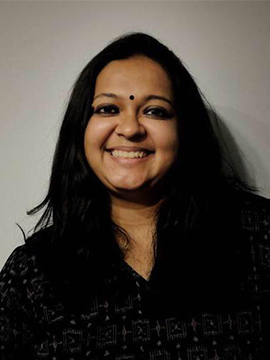 I work at Sigma Ventures, a Bengaluru-based venture capital firm, where I focus on investor relations. I was previously editor, growth, at YourStory, so I channel my storytelling skills to manage Sigma’s branding and marketing activities.
It’s an exciting job but I had to overcome long odds to get to where I am. I grew up in Bihar in a society steeped in patriarchy in the 1990s. My mother passed away when I was just 12. It was hard to overcome her loss, but I did so stoically, focusing on my work at hand—my studies and caring for my father, who had a critical heart condition. I passed my board exams with flying colours and was accepted into St Stephen’s College, New Delhi. I did well there too, but soon after graduating, before I could launch into my professional career, my father succumbed to his illness. As the older daughter, I organised his final rites and ceremony myself. It was heartbreaking. Even so, I ploughed on. I was among the first batch of students to be awarded a five-year teaching assistantship scholarship at Delhi University, where I worked in the history department.
Later in my career, I joined YourStory, interviewing and writing about inspiring leaders, from Arianna Huffington to Sudha Murthy. I was even invited to the Barack Obama Town Hall in New Delhi when he visited in 2017, as a recognition of my work.
Just when I thought I had overcome the pain and hardship that came with the loss of my parents, my little brother suddenly passed away. It was not his time and he was the only family I had.
But I believe in moving forward even in the face of unthinkable grief. I believe in speaking up, not just for myself but for everyone out there. It’s this belief that has led me to champion women’s rights; write about issues that affect women in the workplace and society. It gives me a high like nothing else.
(As told to Varsha Meghani)
‘Always prioritise your own health and happiness. Everything else will fall in place’
I work at Sigma Ventures, a Bengaluru-based venture capital firm, where I focus on investor relations. I was previously editor, growth, at YourStory, so I channel my storytelling skills to manage Sigma’s branding and marketing activities.
It’s an exciting job but I had to overcome long odds to get to where I am. I grew up in Bihar in a society steeped in patriarchy in the 1990s. My mother passed away when I was just 12. It was hard to overcome her loss, but I did so stoically, focusing on my work at hand—my studies and caring for my father, who had a critical heart condition. I passed my board exams with flying colours and was accepted into St Stephen’s College, New Delhi. I did well there too, but soon after graduating, before I could launch into my professional career, my father succumbed to his illness. As the older daughter, I organised his final rites and ceremony myself. It was heartbreaking. Even so, I ploughed on. I was among the first batch of students to be awarded a five-year teaching assistantship scholarship at Delhi University, where I worked in the history department.
Later in my career, I joined YourStory, interviewing and writing about inspiring leaders, from Arianna Huffington to Sudha Murthy. I was even invited to the Barack Obama Town Hall in New Delhi when he visited in 2017, as a recognition of my work.
Just when I thought I had overcome the pain and hardship that came with the loss of my parents, my little brother suddenly passed away. It was not his time and he was the only family I had.
But I believe in moving forward even in the face of unthinkable grief. I believe in speaking up, not just for myself but for everyone out there. It’s this belief that has led me to champion women’s rights; write about issues that affect women in the workplace and society. It gives me a high like nothing else.
(As told to Varsha Meghani)
‘Always prioritise your own health and happiness. Everything else will fall in place’
Saroj Sharma, 78, retired BEML employee who runs a petrol pump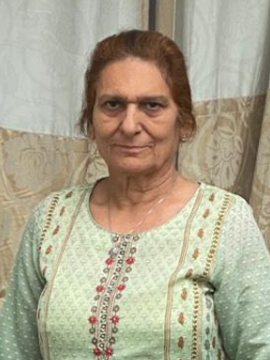 I was the pampered daughter of an army man who served in Lahore before the Partition, and then settled in Amritsar, Punjab, to become the district inspector of schools post-1947. Even in those days, I was passionate about education. I have two Masters degrees—one in geography and the other in economics—apart from a BEd qualification. Only later did I realise that a degree can’t prepare you for life’s challenges.
In my 20s, I married a mechanical engineering from IIT-Madras, recruited with the Border Roads Organisation. He got posted across the country over the years, from Assam and Leh to Manali and Jammu. I made a home in every place, and loved the adventure. I played golf, taught the other army wives to stitch and knit, and learned to drive every kind of vehicle, from ambassadors to jeeps and tractors.
In the 1980s, my husband was deputed at the Bharat Earth Movers Limited (BEML) office in Jammu. In 1984, around the same time as Prime Minister Indira Gandhi’s assassination, my husband suffered a sudden cardiac arrest. My family asked me to relocate to our village in Moga, Punjab, where we had farming land. They said they would take care of me. I realised that while my family had educated me, I had not learned how to be independent.
But I was adamant that what happened with me should not happen with my two daughters. So I decided to remain in Jammu and raise my girls such that they are highly educated and capable of standing on their own feet.
A few years ago, I opted for a voluntary retirement scheme (VRS) to take over my father’s petrol pump in Ludhiana, given to him by the government. I manage that business today. Both my brothers have passed away and my daughters are married and settled in different cities. I am alone, but I never feel lonely. I keep myself happy, and busy. I’m a spendthrift who loves shopping, watching movies and eating food. The one thing I have learned over the years—something I tell my daughters and grandchildren—is that you must always prioritise your own health and happiness. Everything else will fall into place.
I was the pampered daughter of an army man who served in Lahore before the Partition, and then settled in Amritsar, Punjab, to become the district inspector of schools post-1947. Even in those days, I was passionate about education. I have two Masters degrees—one in geography and the other in economics—apart from a BEd qualification. Only later did I realise that a degree can’t prepare you for life’s challenges.
In my 20s, I married a mechanical engineering from IIT-Madras, recruited with the Border Roads Organisation. He got posted across the country over the years, from Assam and Leh to Manali and Jammu. I made a home in every place, and loved the adventure. I played golf, taught the other army wives to stitch and knit, and learned to drive every kind of vehicle, from ambassadors to jeeps and tractors.
In the 1980s, my husband was deputed at the Bharat Earth Movers Limited (BEML) office in Jammu. In 1984, around the same time as Prime Minister Indira Gandhi’s assassination, my husband suffered a sudden cardiac arrest. My family asked me to relocate to our village in Moga, Punjab, where we had farming land. They said they would take care of me. I realised that while my family had educated me, I had not learned how to be independent.
But I was adamant that what happened with me should not happen with my two daughters. So I decided to remain in Jammu and raise my girls such that they are highly educated and capable of standing on their own feet.
A few years ago, I opted for a voluntary retirement scheme (VRS) to take over my father’s petrol pump in Ludhiana, given to him by the government. I manage that business today. Both my brothers have passed away and my daughters are married and settled in different cities. I am alone, but I never feel lonely. I keep myself happy, and busy. I’m a spendthrift who loves shopping, watching movies and eating food. The one thing I have learned over the years—something I tell my daughters and grandchildren—is that you must always prioritise your own health and happiness. Everything else will fall into place.
(As told to Divya Shekhar) ‘Youngsters laud my resilience, making the trouble seem worth it’
Sudesh Arora, 48, paying guest operator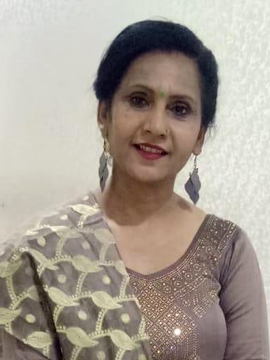 The real challenges in my life began after my husband left me, seven years ago. Not only did he leave me, but also my three children, who lost a father figure and financial security. The marriage ended after 22 years; it is difficult to start life afresh when something like that happens. I knew I had to do something quick, so that the separation did not affect my children and their education. This was when the idea of keeping tenants as paying guests (PG) occurred to me.
My point was initially just to generate income, and it was easy to execute. In Faridabad, I first rented out one room in my house to a boy. Based on its success, I decided to open up two more branches, and named them Arora PGs. Now, two of the PG setups are for boys, and one for girls.
Initially, I would cook for the tenants myself, but as the numbers increased, I roped in a cook and a few staffers. The young guests often come and tell me that they learn from my resilience and ease of doing things. These are the small things that make all the trouble worth it.
I have been used to difficulty since childhood. I lost my mother when I was just four years old. I had to give up education after Class 10. I did not want that to happen to my children. I am proud to say that my daughters are now working, and my son is about to graduate.
I am now looking forward to the next phase, seeing my children settle and start families according to their happiness.
(As told to Namrata Sahoo)
‘My sons, husband pushed me to scale my passion into a business’
The real challenges in my life began after my husband left me, seven years ago. Not only did he leave me, but also my three children, who lost a father figure and financial security. The marriage ended after 22 years; it is difficult to start life afresh when something like that happens. I knew I had to do something quick, so that the separation did not affect my children and their education. This was when the idea of keeping tenants as paying guests (PG) occurred to me.
My point was initially just to generate income, and it was easy to execute. In Faridabad, I first rented out one room in my house to a boy. Based on its success, I decided to open up two more branches, and named them Arora PGs. Now, two of the PG setups are for boys, and one for girls.
Initially, I would cook for the tenants myself, but as the numbers increased, I roped in a cook and a few staffers. The young guests often come and tell me that they learn from my resilience and ease of doing things. These are the small things that make all the trouble worth it.
I have been used to difficulty since childhood. I lost my mother when I was just four years old. I had to give up education after Class 10. I did not want that to happen to my children. I am proud to say that my daughters are now working, and my son is about to graduate.
I am now looking forward to the next phase, seeing my children settle and start families according to their happiness.
(As told to Namrata Sahoo)
‘My sons, husband pushed me to scale my passion into a business’
Kalpana Shah, 56, founder of a baked goods business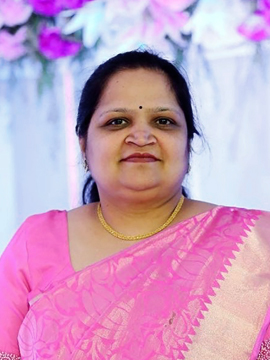 My journey started simply: I asked a dry fruit-shopkeeper back in 2008 if he would like to sell butter cookies. He asked me to send a 2kg-sample, and a few days later, called for a regular supply. Eventually, other dry fruit sellers nearby heard about my cookies, and asked me to supply to them too. My husband’s business was not doing very well at the time, so the extra income was helpful.
Slowly and steadily, this grew into a formal business, and we named it Puffmaster by KK Foods. My husband suggested that I invest in proper equipment for large-scale production; I bought a bigger oven and other requisites, but a few weeks after that, my husband passed away in an unfortunate accident. My sons didn’t let me give up. They became my strength and my reason to continue.
I then decided to expand to other bakery items as well, making flavoured cookies, puff pastries, khari and rusk toast. Interestingly, I didn’t know how to make the khari and rusk toasts at first, and learned how to from a Muslim friend. Multiple failed attempts later, the rusk toasts have now become my specialty.
I saw the business potential, so decided to expand from Sion to Byculla and Bhiwandi in Mumbai. Today, I have 35 employees at three bakeries. We supply products to leading stores, supermarkets and hyper-markets, including Reliance Fresh and D-Mart, and have reached shelves of Indian stores internationally as well.
I feel passion is what gives life meaning. Despite multiple roadblocks and setbacks, I have been able to establish this brand and earn goodwill because of my passion, dedication and hard work.
(As told to Mansvini Kaushik)
‘If you have a business idea, do what it takes to make it happen’
My journey started simply: I asked a dry fruit-shopkeeper back in 2008 if he would like to sell butter cookies. He asked me to send a 2kg-sample, and a few days later, called for a regular supply. Eventually, other dry fruit sellers nearby heard about my cookies, and asked me to supply to them too. My husband’s business was not doing very well at the time, so the extra income was helpful.
Slowly and steadily, this grew into a formal business, and we named it Puffmaster by KK Foods. My husband suggested that I invest in proper equipment for large-scale production; I bought a bigger oven and other requisites, but a few weeks after that, my husband passed away in an unfortunate accident. My sons didn’t let me give up. They became my strength and my reason to continue.
I then decided to expand to other bakery items as well, making flavoured cookies, puff pastries, khari and rusk toast. Interestingly, I didn’t know how to make the khari and rusk toasts at first, and learned how to from a Muslim friend. Multiple failed attempts later, the rusk toasts have now become my specialty.
I saw the business potential, so decided to expand from Sion to Byculla and Bhiwandi in Mumbai. Today, I have 35 employees at three bakeries. We supply products to leading stores, supermarkets and hyper-markets, including Reliance Fresh and D-Mart, and have reached shelves of Indian stores internationally as well.
I feel passion is what gives life meaning. Despite multiple roadblocks and setbacks, I have been able to establish this brand and earn goodwill because of my passion, dedication and hard work.
(As told to Mansvini Kaushik)
‘If you have a business idea, do what it takes to make it happen’
Niharika Bhargava, 26, founder of a farming startup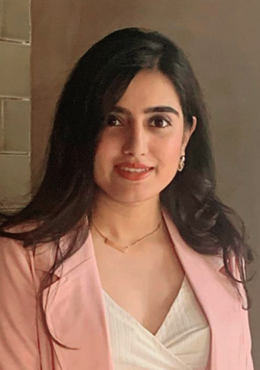 In 2016, I came back to India after graduating from Cass Business School in London. I worked in digital marketing, but always wanted to start my own firm. I decided to seek help from my nature-lover dad, and wanted to revolutionise the organic food market, taking India back to its traditional food practices. In 2017, I founded The Little Farm.
The farming space has been dominated by men, and since I didn’t have any prior experience, few people took me seriously. We had a piece of land in the Paharapurwa village of Madhya Pradesh, from where my father used to bring pickle made from farm produce, to gift to relatives. That’s how the business idea struck me.
We started with making small batches in Delhi, and planned to cultivate our land in the village in parallel. It was different, as we don’t simply do pickle-centric farming. The fact that women in Madhya Pradesh are known for pickle-making worked in our favour. Their pickles are amazing; regardless of whether they sell it or not, all the women make pickle at home there.
Today, I manage 300 acres of organic farms in Madhya Pradesh, where we produce fruits, vegetables and spices, using organic fertilizers and indigenous seeds. Our company produces pickles and superfoods as a natural sequence of value addition at our farms. Recently, we ventured out into spices, oils and vinegar as well. It hasn’t been easy—a lot depends on rainfall, for instance.
The journey is long, but some advice I would give to all women is that if you have a great idea or a passion, do try your hand at it. You won’t know how it pans out until you go out there and try to make it happen.
(As told to Naandika Tripathi)
‘No one believed an 18-year-old could manage a business’
In 2016, I came back to India after graduating from Cass Business School in London. I worked in digital marketing, but always wanted to start my own firm. I decided to seek help from my nature-lover dad, and wanted to revolutionise the organic food market, taking India back to its traditional food practices. In 2017, I founded The Little Farm.
The farming space has been dominated by men, and since I didn’t have any prior experience, few people took me seriously. We had a piece of land in the Paharapurwa village of Madhya Pradesh, from where my father used to bring pickle made from farm produce, to gift to relatives. That’s how the business idea struck me.
We started with making small batches in Delhi, and planned to cultivate our land in the village in parallel. It was different, as we don’t simply do pickle-centric farming. The fact that women in Madhya Pradesh are known for pickle-making worked in our favour. Their pickles are amazing; regardless of whether they sell it or not, all the women make pickle at home there.
Today, I manage 300 acres of organic farms in Madhya Pradesh, where we produce fruits, vegetables and spices, using organic fertilizers and indigenous seeds. Our company produces pickles and superfoods as a natural sequence of value addition at our farms. Recently, we ventured out into spices, oils and vinegar as well. It hasn’t been easy—a lot depends on rainfall, for instance.
The journey is long, but some advice I would give to all women is that if you have a great idea or a passion, do try your hand at it. You won’t know how it pans out until you go out there and try to make it happen.
(As told to Naandika Tripathi)
‘No one believed an 18-year-old could manage a business’
Tanisha Fagwani, 23, merchandise retailer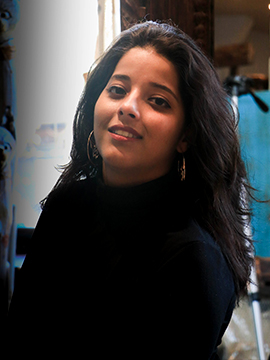 In 2016, I wanted to own the Harry Potter accessory called ‘time turner’, which cost an exorbitant $50 in India, plus shipping charges. That’s when I saw a market gap for licensed pop culture merchandise, and created the EFG Store (Every Flavour Geeks), a retail and self-created website. It stocks accessories, stationery and toys from popular franchises, including Marvel, DC, Disney, Harry Potter and Friends. It started as a way to earn extra pocket money at 18, but is now a full-fledged business, retailing from more than 250 stores across India.
The biggest challenge was for people to believe that an 18-year old could manage everything. People don’t take you seriously and think it as a temporary stint. Employees don’t want to take orders from you when you’re young. Also, people were critical because I was focusing on a startup along with college, and I faced a lot of backlash—until I started bringing in the revenue.
The company is bootstrapped, starting with Rs 1.2 lakh; of this, Rs 70,000 came from internships, and the rest from my mother. Through it all, I looked up to my mother. She is the youngest of seven siblings, and fought her way through a traditional family to provide us with the best. Even as someone who was married off early and not allowed to finish her degree, she never let us settle for anything lesser. Both my parents have seen tough times, and yet, gave us the best opportunities. They have been a driving force behind my success.
(As told to Pranit Sarda)
Forbes India W-Power - Self-Made Women 2020: See full list here
In 2016, I wanted to own the Harry Potter accessory called ‘time turner’, which cost an exorbitant $50 in India, plus shipping charges. That’s when I saw a market gap for licensed pop culture merchandise, and created the EFG Store (Every Flavour Geeks), a retail and self-created website. It stocks accessories, stationery and toys from popular franchises, including Marvel, DC, Disney, Harry Potter and Friends. It started as a way to earn extra pocket money at 18, but is now a full-fledged business, retailing from more than 250 stores across India.
The biggest challenge was for people to believe that an 18-year old could manage everything. People don’t take you seriously and think it as a temporary stint. Employees don’t want to take orders from you when you’re young. Also, people were critical because I was focusing on a startup along with college, and I faced a lot of backlash—until I started bringing in the revenue.
The company is bootstrapped, starting with Rs 1.2 lakh; of this, Rs 70,000 came from internships, and the rest from my mother. Through it all, I looked up to my mother. She is the youngest of seven siblings, and fought her way through a traditional family to provide us with the best. Even as someone who was married off early and not allowed to finish her degree, she never let us settle for anything lesser. Both my parents have seen tough times, and yet, gave us the best opportunities. They have been a driving force behind my success.
(As told to Pranit Sarda)
Forbes India W-Power - Self-Made Women 2020: See full list here
Rita Jairath, 51, Bodybuilder

I used to help my neighbour's son in studies, and to get away from the beatings and work towards becoming a doctor, I married his brother, a merchant navy officer. But it turned out to be more of the same. My in-laws taunted me and, through my pregnancy, treated me like a maid. They initially refused to pay for a caesarean delivery, but when the foetus’s heartbeat went very low, they were forced to. My son, Anish, was born autistic and couldn’t speak in his initial years.
Anish fell ill after a few months, but they refused to take him to a doctor. That’s when I went back to living with my parents, which was equally unhappy.
I consulted various doctors for Anish and all of them said I was wasting time and money; that he would never speak. But, by then, I had lost everything, and my only mission was to make him as normal as possible. There was limited knowledge about autism in India then, in the 80s, so I wrote to a relative in the US. He sent me literature on autism, which helped me create flash cards and therapy strategies. When Anish was about five or six, he started to speak; he couldn’t make meaningful conversations, but it was a start.
A neuropsychiatrist suggested enrolling him in sport. In Class 10, he wanted to emulate Hrithik Roshan’s six-pack abs. I enrolled him into a gym and started training alongside. I began enjoying it, and participated in local fitness competitions, slowly leading up to national and international contests. I was perhaps a natural—in one competition, I did 500 squats; the next best was a national-level runner who did 75.
Of course, there was criticism. But staying in near-isolation all these years helped me blank out that noise. Once I started winning, I found more supporters than detractors. I am now a three-time national bodylifting champion, and the only woman pro-league international bodybuilding judge from Asia for the IFBB (International Federation of Bodybuilding). I also consult athletes and trainers for their diets and sports nutrition.
Meanwhile, I sent my son to college in the UK to study computing. There, he was housed with a compassionate Portuguese family and I would visit every month. Once he completed his education, I set out to complete mine. I did my graduation and post-graduation degrees from Delhi University and eventually got an honorary doctorate from the American University, affiliated to the United Nations University. Life, indeed, has come a full circle (As told to Kathakali Chanda) 'I learned this the hard way: Every woman should find ways to earn her own money’
Reeta Khandelwal, 51, jeweller

Tanvi Dubey, 37, Venture Capitalist

Saroj Sharma, 78, retired BEML employee who runs a petrol pump

(As told to Divya Shekhar) ‘Youngsters laud my resilience, making the trouble seem worth it’
Sudesh Arora, 48, paying guest operator

Kalpana Shah, 56, founder of a baked goods business

Niharika Bhargava, 26, founder of a farming startup

Tanisha Fagwani, 23, merchandise retailer

Post Your Comment
Comments 1
-
 Satyendra sigh,advocate,central government counsel ex, uttarakkhand high court.na in ital. India.
Satyendra sigh,advocate,central government counsel ex, uttarakkhand high court.na in ital. India.I salute every women doing hard wok in spite of all odds and getting success everywhere. The country should appreciate their hard work and facilitete them. Thank you for bes india with regards.satyendra singh,advocate, central government counsel ,ex, uttarakhand high court , na in ital. India.
on Mar 9, 2020














